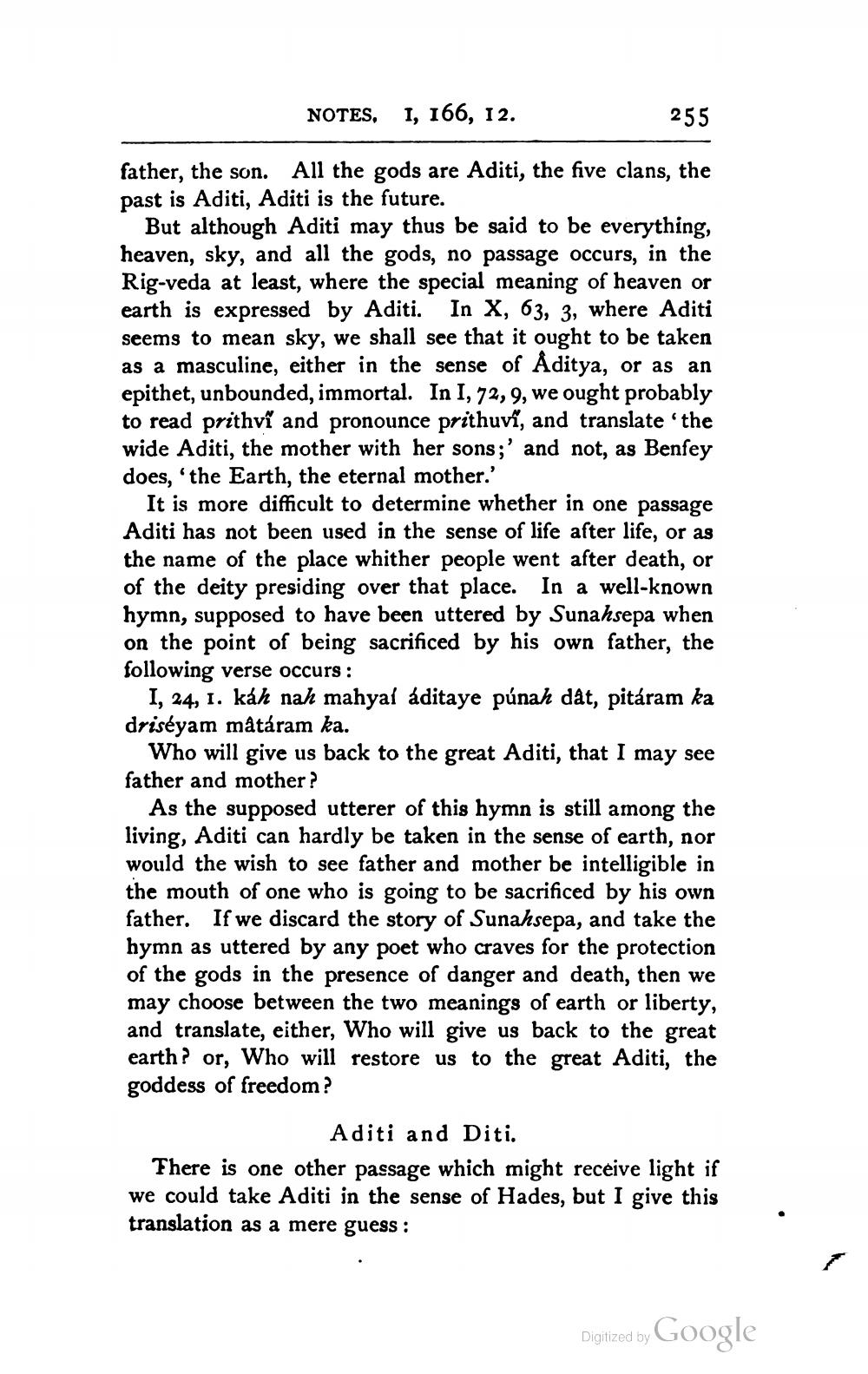________________
NOTES, I, 166, 12.
255
father, the son. All the gods are Aditi, the five clans, the past is Aditi, Aditi is the future.
But although Aditi may thus be said to be everything, heaven, sky, and all the gods, no passage occurs, in the Rig-veda at least, where the special meaning of heaven or earth is expressed by Aditi. In X, 63, 3, where Aditi seems to mean sky, we shall see that it ought to be taken as a masculine, either in the sense of Aditya, or as an epithet, unbounded, immortal. In I, 72, 9, we ought probably to read prithvî and pronounce prithuvî, and translate the wide Aditi, the mother with her sons;' and not, as Bensey does, 'the Earth, the eternal mother.'
It is more difficult to determine whether in one passage Aditi has not been used in the sense of life after life, or as the name of the place whither people went after death, or of the deity presiding over that place. In a well-known hymn, supposed to have been uttered by Sunahsepa when on the point of being sacrificed by his own father, the following verse occurs :
I, 24, 1. kah nah mahyal áditaye púnah dât, pitáram ka driséyam mataram ka.
Who will give us back to the great Aditi, that I may see father and mother?
As the supposed utterer of this hymn is still among the living, Aditi can hardly be taken in the sense of earth, nor would the wish to see father and mother be intelligible in the mouth of one who is going to be sacrificed by his own father. If we discard the story of Sunahsepa, and take the hymn as uttered by any poet who craves for the protection of the gods in the presence of danger and death, then we may choose between the two meanings of earth or liberty, and translate, either, Who will give us back to the great earth? or, Who will restore us to the great Aditi, the goddess of freedom?
Aditi and Diti. There is one other passage which might receive light if we could take Aditi in the sense of Hades, but I give this translation as a mere guess :
Digitized by
Digized by Google




